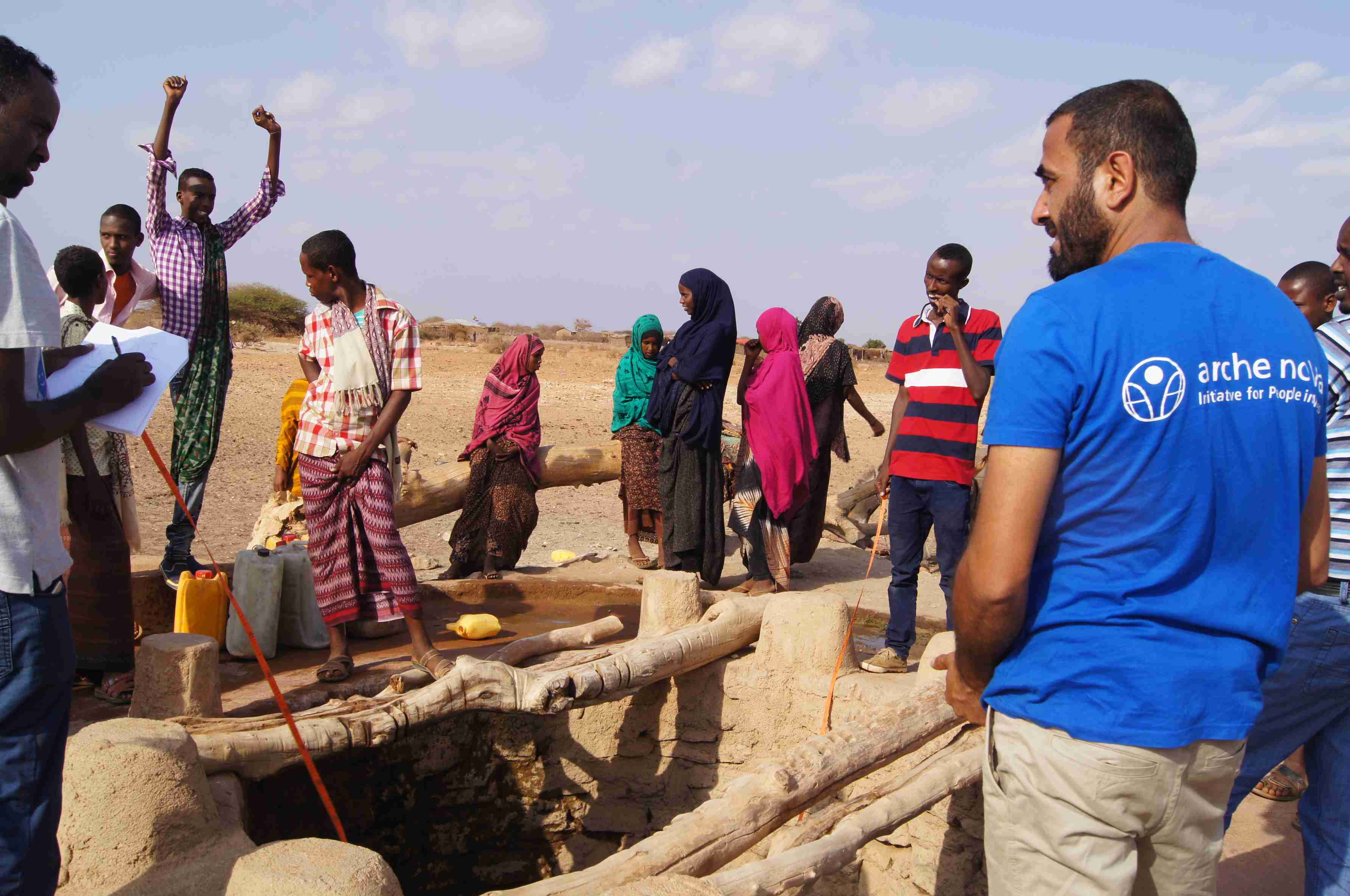What has happened?
In the South-East of Ethiopia the rainfall has been missing since October 2016. As I was on-site for the first time in April 2017, everything was as dry as I have never seen it before. Even though I am used to this from Pakistan. On the sideways children sat, begging for water and food. People told me about their animals they couldn’t water anymore. 70 percent of their cattle had deceased. Everywhere the carcasses were lying around in the blazing sun. A catastrophe for the families. In their lives everything revolves around their camels and goats.
How can we imagine the living circumstances of those families?
From the viewpoint of the central government in Addis Abeba the Somali region is far off the beaten path. That means that the economic power reaches the already poverty-shaped South East even less. Families here are living in the simplest mud huts, some of them are engaging in agriculture, most of them depend on their cattle as their source of food and income. The only houses made out of stone are the schools, hospitals and the administration buildings.
How are the conditions in terms of water supply?
This is very difficult, because even without acute drought it is often really dry around here. So rainfall is precious and traditionally collected in basins, called Birkat. Mostly they are open and a source of water for man and animal. Additionally there are shallow wells also fed by the rain. In the extreme phase of drought in 2016/17 most of those systems ran dry. As we were on-site, some rain fell in the beginning of the year. But also this year’s rain season was not enough to refill the existing systems to the needed point. That is why we began to construct new collection basins, to seal and roof the existing ones and to equip them with hand pumps for water delivery. Also we are rehabilitating already built shallow wells.
Is arche noVa also building wells?
The drilling of wells is extremely expensive. Each single meters costs us around 1 000€. When you want to reach the groundwater, you have to go between 300 and 600 meters deep. Earlier 150 meters were already enough. Our budget can’t compensate such investments. At one place, where local authorities will take over the drilling, we may contribute to the expansion of the aboveground system.
I am convinced that we distributed the money being at our disposal in a reasonable way. The water systems in our project communities are much safer than before, provide more water for a longer time and meet way higher hygiene standards. New ones will be added. Additionally we are constructing toilets divided by sex which will improve the health situation. We are executing intense trainings in hygiene topics and clearing up about the danger of diarrhoeal diseases which are an acute problem, especially after beginning rainfall. We are also informing about ways of disease transmission and how to prevent getting infected. In particular for people, who are suffering from malnutrition it is essential to survive and to avoid contagion with diarrhoea. Because of this we have already installed a water treatment plant at the medical center.
How will it go on, when arche noVa isn’t on-site anymore?
Our projects are in direct cooperation with the local organization OWDA. The colleagues will be also active in the future around here. At our project sites we are preparing the inhabitants specifically for what is to do so our investments can endure. We are training water committees in maintaining the systems and installing payment schemes for the water, so reparations are possible in the future.
So everything is going on trouble-free?
Well – such a project is never perfect. Especially in the beginning there were bureaucratic obstacles. It took way more time to get the project permit from the local authorities than we planned and hoped. Out time tables on-site also are very varying sometimes. First nothing happens for days, but suddenly many helping hands are coming together and then the construction project is finished days earlier than it was planned. The help from the local people is impressive.
We would like to expand our activities in Ethiopia further. To do so, we are relying on donations.
Which activities arche noVa is doing on-site, we are describing here.













